Filter by

Hot Property = The Housing Market in Major Cities
Dr. Rob Nijskens Rob is an economist in the Financial Stability Division of DNB since 2012, specializing in analyzing financial stability risks in commercial and residential real estate markets. Together with Melanie Lohuis and Willem Heeringa he authored the 2017 DNB Occasional Study “The housing market in major Dutch cities”. He has also written extensively on commercial real estate, bot…
- Edition
- 1
- ISBN/ISSN
- 9783030116743
- Collation
- XVI, 221 ill; lamp
- Series Title
- -
- Call Number
- -
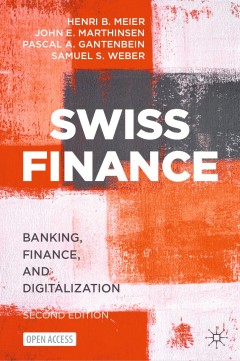
Swiss Finance
How could a small country in the middle of Europe, surrounded by much bigger countries and economic giants like Germany and France and in direct competition with North American and Asian rivals, develop world-class, cutting-edge financial markets? Swiss Finance answers this question, separating myth from reality, by explaining how Switzerland managed dramatic pressures brought to bear on its fi…
- Edition
- 1
- ISBN/ISSN
- 978-3-031-23194-0
- Collation
- XXXVI, 612
- Series Title
- -
- Call Number
- -
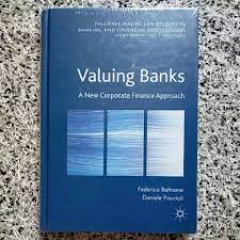
Valuing Banks A New Corporate Finance Approach
This book aims to overcome the limitations the variations in bank-specifics impose by providing a bank-specific valuation theoretical framework and a new asset-side model. The book includes also a constructive comparison of equity and asset side methods. The authors present a novel framework entitled, the “Asset Mark-down Model”. This method incorporates an Adjusted Present Value model, whi…
- Edition
- -
- ISBN/ISSN
- 978-1-137-56142-8
- Collation
- -
- Series Title
- -
- Call Number
- -
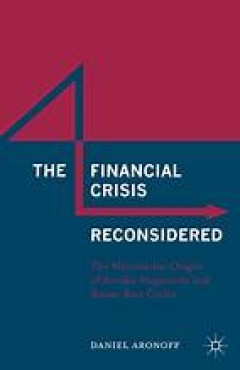
The Financial Crisis Reconsidered
In The Financial Crisis Reconsidered, Aronoff challenges the conventional view that reckless credit produced the US housing boom and the financial crisis, explaining how the large current account deficit, and its mercantilist origin, was a more fundamental cause. He also demonstrates that the decision to provide relief for bank creditors rather than underwater homeowners was responsible for the…
- Edition
- 1
- ISBN/ISSN
- 978-1-137-54789-7
- Collation
- XVII, 291
- Series Title
- -
- Call Number
- -
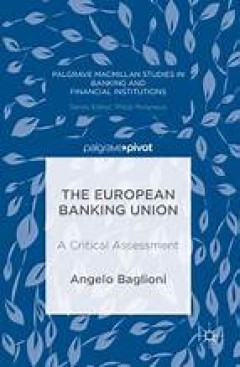
The European Banking Union
Why did European policy-makers introduce the Banking Union? Which are its main features? How does it affect banks and their customers? This book tries to answer these questions, by providing a clear description of the building blocks of the banking union, and by discussing the issues that still remain unanswered.
- Edition
- 1
- ISBN/ISSN
- 978-1-137-56314-9
- Collation
- XIII, 136, 8 b/w illustrations
- Series Title
- Palgrave Macmillan Studies in Banking and Financial Institutions
- Call Number
- -
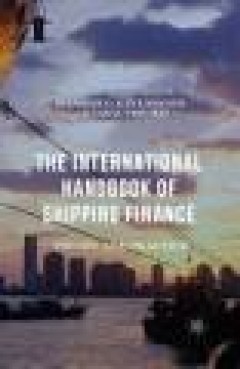
The International Handbook of Shipping Finance
Edited by two leading academics in this area, and with contributions from 25 prominent market practitioners and academics over 16 chapters, this Handbook covers shipping finance and banking, maritime financial management and investments. As such, it includes: shipping markets; asset backed finance; shipbuilding finance; debt finance; public and private equity and debt markets; structured financ…
- Edition
- 1
- ISBN/ISSN
- 978-1-137-46546-7
- Collation
- XLII, 430, 20 b/w illustrations, 86 illustrations in colour
- Series Title
- The International Handbook of Shipping Finance
- Call Number
- -
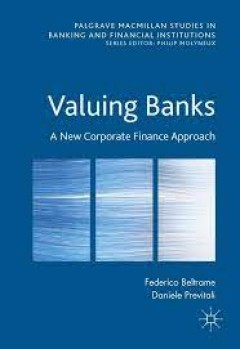
Valuing Banks A New Corporate Finance Approach
This book aims to overcome the limitations the variations in bank-specifics impose by providing a bank-specific valuation theoretical framework and a new asset-side model. The book includes also a constructive comparison of equity and asset side methods. The authors present a novel framework entitled, the “Asset Mark-down Model”. This method incorporates an Adjusted Present Value model, whi…
- Edition
- -
- ISBN/ISSN
- 978-1-137-56142-8
- Collation
- 19 b/w illustrations
- Series Title
- -
- Call Number
- -
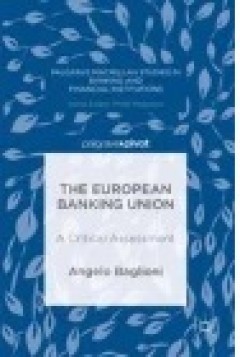
The European Banking Union
Why did European policy-makers introduce the Banking Union? Which are its main features? How does it affect banks and their customers? This book tries to answer these questions, by providing a clear description of the building blocks of the banking union, and by discussing the issues that still remain unanswered.
- Edition
- -
- ISBN/ISSN
- 978-1-137-56314-9
- Collation
- XIII, 136
- Series Title
- Palgrave Macmillan Studies in Banking and Financial Institutions
- Call Number
- -
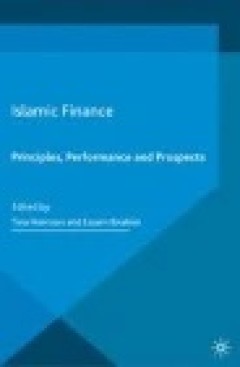
Islamic Finance: Principles, Performance and Prospects
This book demonstrates how the global market for Islamic financial services has shown strong growth in recent years and shown remarkable resilience during the global financial crisis. Drawing on a range of international perspectives from the Gulf Cooperation Council countries, Malaysia, Pakistan, Australia and Europe, this book explores the characteristics and performance of Islamic finance and…
- Edition
- -
- ISBN/ISSN
- 978-3-319-30918-7
- Collation
- -
- Series Title
- -
- Call Number
- -
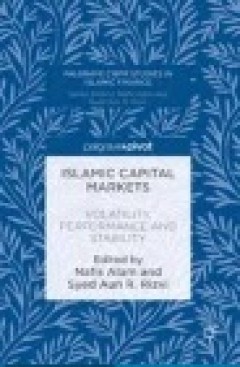
Islamic Capital Markets: Volatility, Performance and Stability
This book addresses contemporary empirical issues in Islamic stock markets including volatility, efficiency and Sukuk defaults. The studies contained within this book consider a combination of pure Islamic stock markets and comparative studies, with reference to their conventional counterparts. The authors provide up-to-date, robust, accurate, reliable empirical enquiries addressing current iss…
- Edition
- -
- ISBN/ISSN
- 978-3-319-33991-7
- Collation
- -
- Series Title
- -
- Call Number
- -
 Computer Science, Information & General Works
Computer Science, Information & General Works  Philosophy & Psychology
Philosophy & Psychology  Religion
Religion  Social Sciences
Social Sciences  Language
Language  Pure Science
Pure Science  Applied Sciences
Applied Sciences  Art & Recreation
Art & Recreation  Literature
Literature  History & Geography
History & Geography